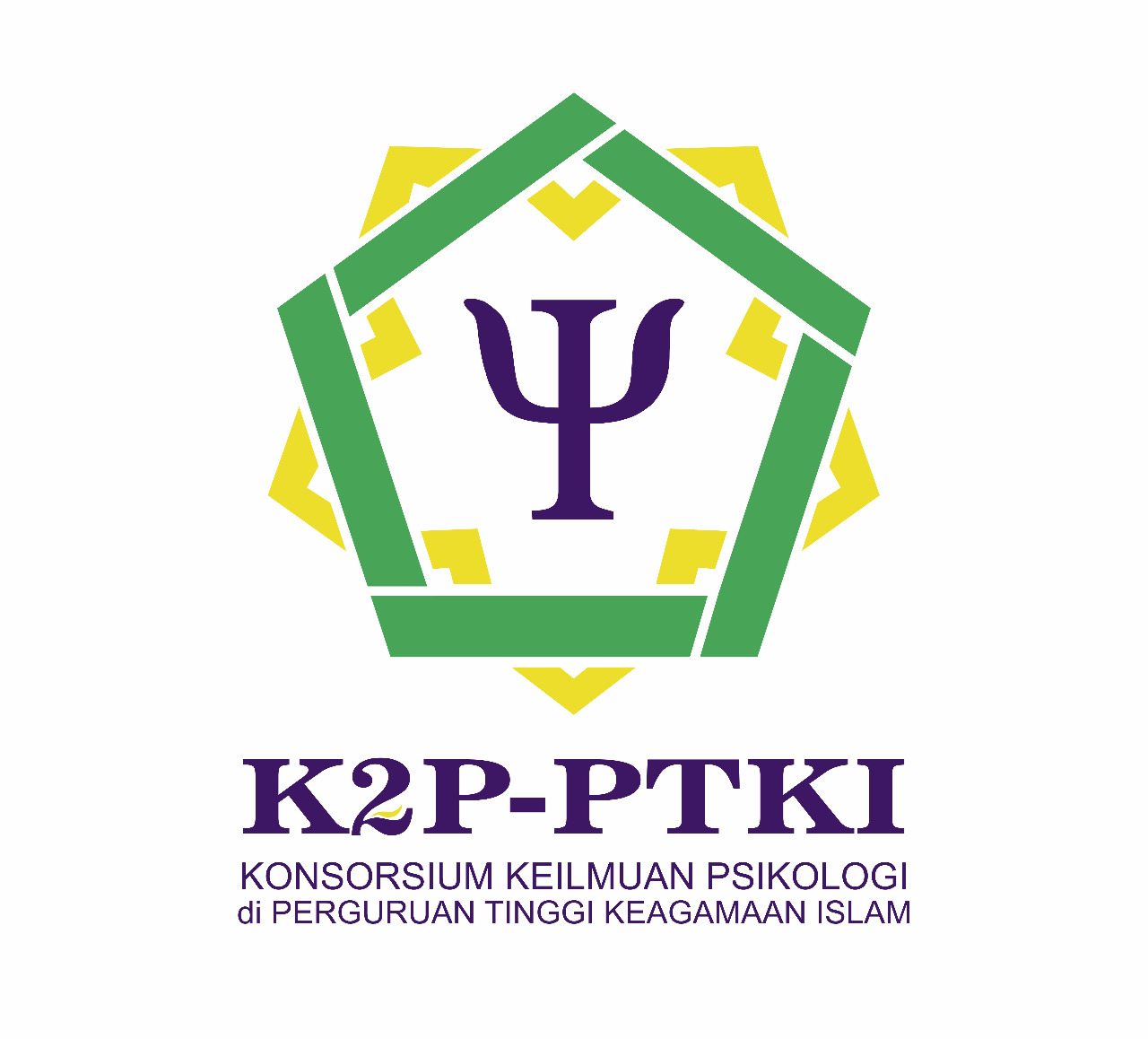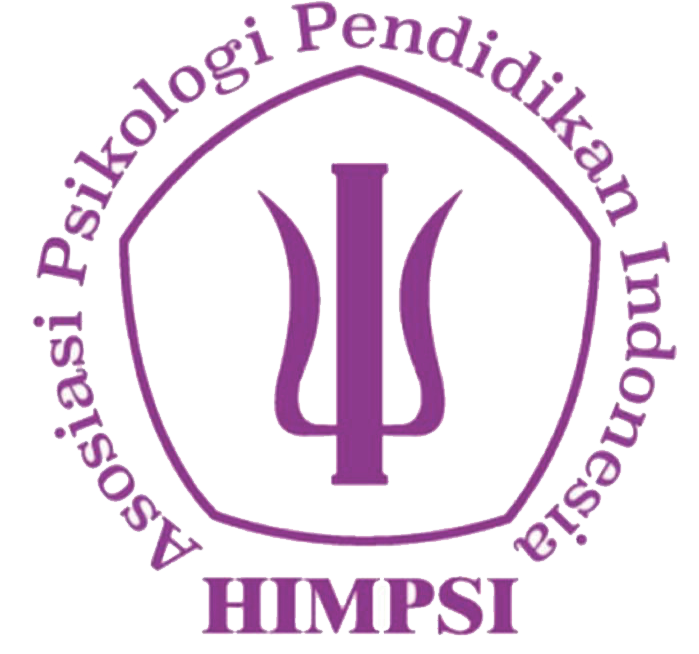Self-efficacy and academic performance of vocational high school students
Abstract
Abstract: The aim of this research is to examine the role of self-efficacy on academic performance of Vocational High School students. This research uses a quantitative approach with a correlational research design. The participants of this research are at 115 students of the Vocational High School, Department of Electrical and Industrial Engineering who were obtained based on convenience sampling technique. The data analysis is used by regression analysis with Jeffrey’s Amazing Statistics Program (JASP). The result of this research indicated that self-efficacy has a significant role on academic performance.
Keywords: self-efficacy; academic performance; student
Keywords
Full Text:
PDF (Bahasa Indonesia)References
Adenike, A. O., & Oyesoji, A. A. (2010). The relationship among predictors of child, family, school, society and the government and academic achievement of senior secondary school students in Ibadan, Nigeria. Procedia -Social and Behavioral Sciences, 5, 842–849. https://doi.org/10.1016/j.sbspro.2010.07.196
Agustiani, H., Cahyad, S., & Musa, M. (2016). Self-efficacy and self-regulated learning as predictors of students academic performance. The Open Psychology Journal, 9(1), 1–6. https://doi.org/10.2174/1874350101609010001
Ahmad, A., & Safaria, T. (2013). Effects of self-efficacy on student’s academic performance. Journal of Educational, Health and Community Psychology, 2(1), 22–29. https://doi.org/10.12928/jehcp.v2i1.3740
Akomolafe, M. J., Ogunmakin, A. O., & Fasooto, G. M. (2013). The role of academic self-efficacy, academic motivation and academic self-concept in predicting secondary school students’ academic performance. Journal of Educational and Social Research, 3(May), 335–342. https://doi.org/10.5901/jesr.2013.v3n2p335
Akram, B., & Ghazanfar, L. (2014). Self efficacy and academic performance of the students of Gujrat University , Pakistan. Academic Research International, 5(1), 283–290.
Alegre, A. A. (2014). Academic self-efficacy, self-regulated learning and academic performance in first-year university students. Propósitos y Representaciones, 2(1), 101–120. https://doi.org/10.20511/pyr2014.v2n1.54
Alhadabi, A., & Karpinski, A. C. (2020). Grit, self-efficacy, achievement orientation goals, and academic performance in University students. International Journal of Adolescence and Youth, 25(1), 519–535. https://doi.org/10.1080/02673843.2019.1679202
APA dictionary of psychology (2nd ed.). (2016). In G. R. VandenBos (Ed.), APA dictionary of psychology (2nd ed.). (2nd ed.). American Psychological Association. https://doi.org/10.1037/14646-000
Arifin, Z. (2016). Evaluasi Pembelajaran. PT Remaja Rosdakarya.
Bandura, A. (1977). Self-efficacy: Toward a unifying theory of behavioral change. Psychological Review, 84(2), 191–215. https://doi.org/10.1037/0033-295X.84.2.191
Bhagat, V. (2013). Extroversion and academic performance of medical students. International Journal of Humanities and Social Science Invention, 2(3), 55–58.
Bulent, A. (2015). The influence of self-efficacy and motivational factors on academic performance in general chemistry course: A modeling study. Educational Research and Reviews, 10(4), 453–461. https://doi.org/10.5897/err2014.2003
Cassidy, S., & Eachus, P. (2000). Learning style, academic belief systems, self-report student proficiency and academic achievement in higher education. Educational Psychology, 20(3), 307–322. https://doi.org/10.1080/713663740
Dogan, U. (2015). Student engagement, academic self-efficacy, and academic motivation as predictors of academic performance. Anthropologist, 20(3), 553–561. https://doi.org/10.1080/09720073.2015.11891759
Ducay, J. T., & Alave, A. D. (2021). Self Efficacy, anxiety, and academic performance in mathematics of Junior High School students (Vol. 11, Issue 1, pp. 41–46). https://doi.org/10.46360/globus.edu.220211009
Fun, L. F. (2021). Effikasi Diri dan Performansi Akademik: Studi Meta Analisis. Humanitas (Jurnal Psikologi), 5(2), 165–178. https://doi.org/10.28932/humanitas.v5i2.3581
Hermina, D. (2022). Pendidikan vokasi dan kejuruan di madrasah. Strategi Dan Revitalisasi Abad, 21.
John, C., & Timothy, G. (2021). Educationa research: Planning, conductiong, and evaluating quantitative and qualitative research (6th ed.). Pearson Education, Inc.
Lestari, W. A., & Maulani, Y. (2021). … era revolusi digital (society 5.0 dan revolusi industri 4.0) di bidang pendidikan melalui pengembangan sumber daya manusia. In Prosiding Seminar Manajemen http://www.openjournal.unpam.ac.id/index.php/PSM/article/view/14583%0Ahttp://www.openjournal.unpam.ac.id/index.php/PSM/article/download/14583/8211
Maropamabi, G. (n.d.). Role of self-efficacy and self-esteem in academic performance. European Journal of Educational Sciences, 2(2), 8–22.
Nagayama Hall, G. C. (2021). Social psychology. In Multicultural Psychology (13th ed.). Mc-Graw Hill Education. https://doi.org/10.4324/9781315663531-11
Ogunmakin, A. O., & Akomolafe, M. J. (2013). Academic self-efficacy, locus of control and academic performance of secondary school students in Ondo State, Nigeria. Mediterranean Journal of Social Sciences, 4(11), 570–576. https://doi.org/10.5901/mjss.2013.v4n11p570
Richardson, M., Abraham, C., & Bond, R. (2012). Psychological correlates of university students’ academic performance: A systematic review and meta-analysis. Psychological Bulletin, 138(2), 353–387. https://doi.org/10.1037/a0026838
Rifa Hanifa Mardhiyah, Sekar Nurul Fajriyah Aldriani, Febyana Chitta, & Muhamad Rizal Zulfikar. (2021). Pentingnya keterampilan belajar di abad 21 sebagai tuntutan dalam pengembangan sumber daya manusia. Lectura : Jurnal Pendidikan, 12(1), 29–40. https://doi.org/10.31849/lectura.v12i1.5813
Santrock, J. W. (2018). Educational psychology: Theory and application to fitness and performance. In New York: McGraw-Hill Education (6th ed.). Mc-Graw Hill Education.
Shkullaku, R. (2013). The Relationship between Self-efficacy and Academic Performance in the Context of Gender among Albanian Students. European Academic Research, 1(4), 467–478. www.euacademic.org
Stajkovic, A. D., Bandura, A., Locke, E. A., Lee, D., & Sergent, K. (2018). Test of three conceptual models of influence of the big five personality traits and self-efficacy on academic performance: A meta-analytic path-analysis. Personality and Individual Differences, 120(August 2017), 238–245. https://doi.org/10.1016/j.paid.2017.08.014
Talsma, K., Schüz, B., Schwarzer, R., & Norris, K. (2018). I believe, therefore I achieve (and vice versa): A meta-analytic cross-lagged panel analysis of self-efficacy and academic performance. Learning and Individual Differences, 61(April 2017), 136–150. https://doi.org/10.1016/j.lindif.2017.11.015
Wentzel, K. R., & Miele, D. B. (2016). Handbook of motivation at school: Second edition. In Handbook of Motivation at School: Second Edition (pp. 1–532). https://doi.org/10.4324/9781315773384
Yamamoto, K. (2004). Educational psychology. In The Social Science Encyclopedia (13th ed.). Pearson Education Limited. https://doi.org/10.15864/ijelts.5102
DOI: https://doi.org/10.18860/psikoislamika.v20i1.18369

This work is licensed under a Creative Commons Attribution-NonCommercial-ShareAlike 4.0 International License.

------------------------------------------------------------------------------------------

pSIKOISLAMIKA by http://ejournal.uin-malang.ac.id/index.php/psiko is licensed under a Creative Commons Attribution-NonCommercial-ShareAlike 4.0 International License.


.jpg)


.jpg)





